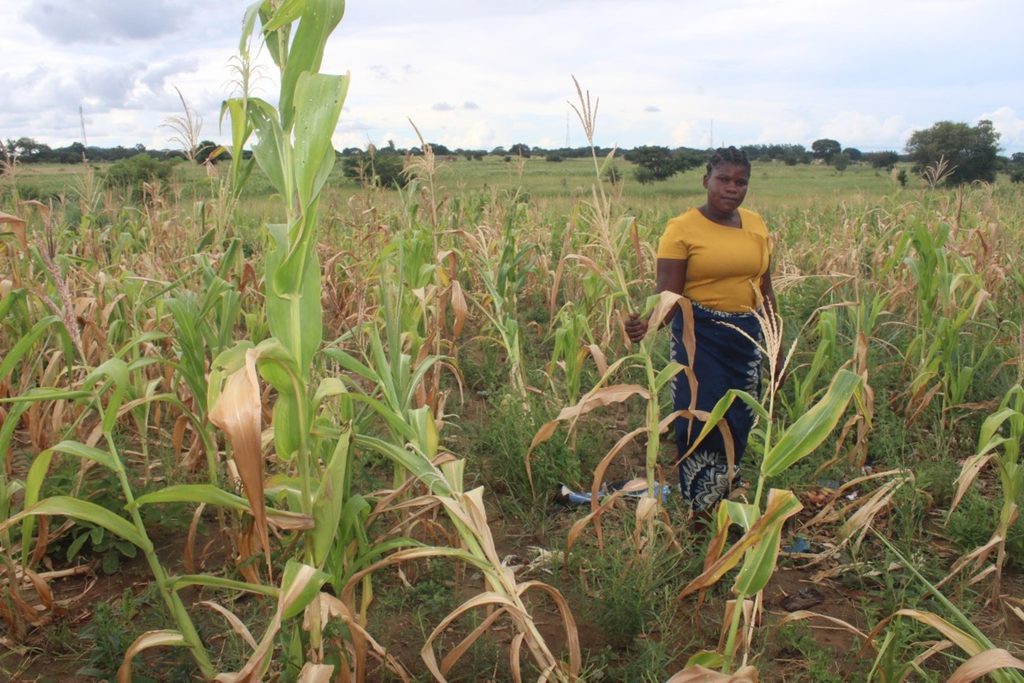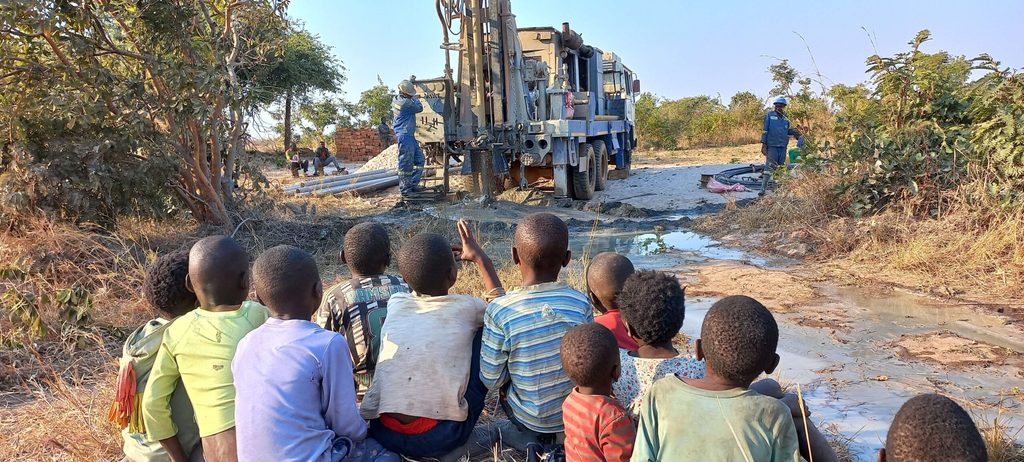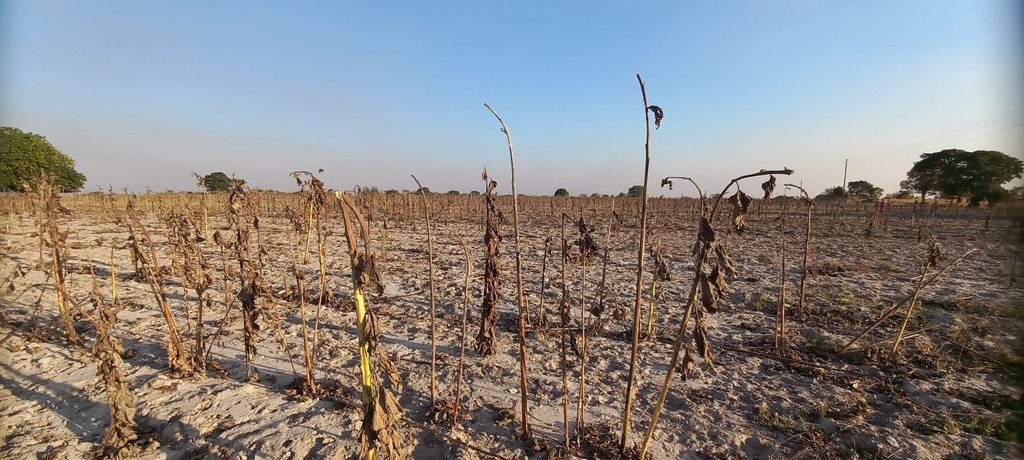Drought crisis has critical consequences for millions in Zambia
12 July 2024The ongoing drought in Zambia is having critical consequences on agriculture, water, energy and food security with millions of people affected. Plan International's drought response is working to support families to meet their survival needs.

On the 29th of February 2024, a national state of emergency was declared in Zambia due to the ongoing drought that continues to affect large parts of the country.
Who is affected by the drought?
The drought caused by El Nino weather conditions has affected around 1/2 of the country’s population, having critical consequences on agriculture, water, energy and food security.
The drought has significantly impacted the most vulnerable and marginalised communities including single women and child headed households who rely on agriculture production and wage labour.
According to the government’s food security drought response plan released in April 2024, the drought has affected 9.8 million people in 84 out of 116 districts and there are 6.6 million people in need of support. To respond to this need will require a total of 941 million US dollars in response and recovery initiatives.
Community challenges are mounting
Because of the drought families must walk for many hours to fetch water. Girls do not have a sufficient amount of water to maintain their personal hygiene during menstruation and are at increased risk of gender-based violence – which is exacerbated in times of crisis.
Poor and vulnerable families are living on 1 meal a day, with schoolchildren struggling and loosing concentration in their classes. Livelihoods are impacted and families struggle to maintain their income sources.
The drought has also impacted ongoing livelihood programmes as crops fail and families struggle to feed their livestock. Plan International Zambia’s Central Province Programme Area Manager Marget Nakamba explains:
”Poor and vulnerable families who are relying on 1 meal a day are also facing challenges to rear their poultry, piggery and other livestock. As our livelihood initiatives have been largely affected due to drought, livestock feeding is becoming a huge challenge for families as many of them are out of food stock.”

Plan International’s drought response
Kenny Sondoyi, Plan International Zambia’s Head of Programmes says, ”Our immediate priority is providing relief to vulnerable families especially single mothers and child headed households so that they can meet their survival needs.”
Plan’s drought response is working across 8 districts, targeting the most vulnerable families but more funding and support is needed to meet the targets.
Our drought response tackles: food security, livelihood insecurity, safeguarding, water and sanitation, and cash transfers, working closely with the government, humanitarian partners, traditional leaders and community groups to deliver this response.
”Our immediate priority is providing relief to vulnerable families.”
Kenny Sondoyi, Plan International Zambia’s Head of Programmes
Food distribution
Plan has mobilised its resources to deliver food, cooking oil and salt to families; as well as high energy protein supplements for children and food for work. So far, our response has delivered food to 21,320 families and 8,350 children have received high energy protein supplements.
Access to water
To provide water, we are drilling 20 boreholes, each between 120 to 150 meters in depth to create longer lasting water sources, giving families access to water for consumption and irrigation. This will allow them to replant early maturing plants.
Tackling increased risk of gender-based violence
‘Protecting girls and young women from gender-based violence, exacerbated in crisis times, is a top priority of the current response,’ Kenny emphasises.
Awareness sessions on the harmful consequences of child, early and forced marriages and unions are hosted in drought affected communities. These sessions also aim to help reduce transactional sex and prostitution among adolescent girls that exposes them to unwanted pregnancies and sexually transmitted diseases such as HIV.
Developing sustainable initiatives
We are working with partners and other organisations to develop sustainable initiatives that will help communities recovery and build resilience to the ongoing effects of climate change. These include promoting green enterprises, climate smart adaptation measures and drilling boreholes so communities have lasting access to water.

Where we are working
Currently, the drought response is being implemented in Chisamba and Kapiri Mposhi (Central Province), Chadiza, Vumbi, and Mambwe (Eastern Province), and Gwembe, Kalomo, and Sinazongwe (Southern Province). These areas have a population of 1.3 million, with about 30% severely affected by the current drought.
Implementing the drought response is not without its challenges; as daily power cuts that last for 12 to 18 hours make it difficult to communicate with community people, volunteers and the team within the field.
Our response team assessed the community level impact of the drought before it was declared a national disaster and have since been working to respond.
Categories: Emergencies, Protection from violence


